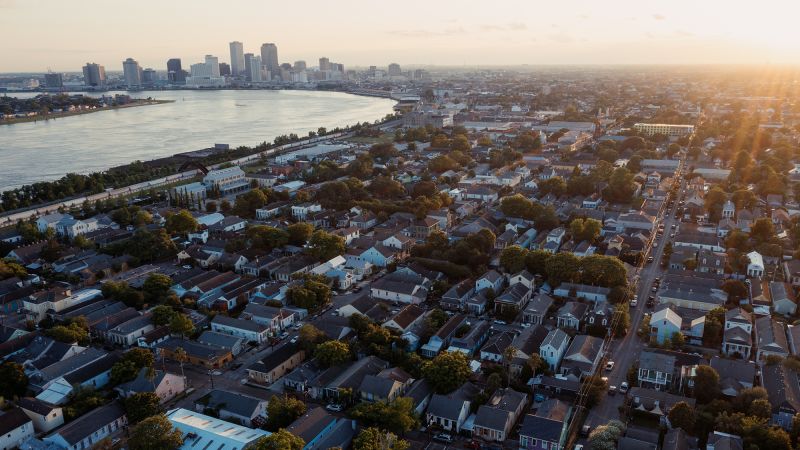The home insurance market is crumbling in New Orleans, leaving Alfredo Herrera with few options for coverage — and skyrocketing insurance premiums.
Herrera, 35, works in finance for a local bank. He bought his 900-square-foot home in New Orleans’ Mid-City neighborhood in 2020 for $270,000, and lives there with his partner.
In 2022, he paid $1,600 a year for home insurance. But last July, his insurer canceled his coverage, saying it was leaving Louisiana.
In the past, acquiring or keeping homeowners’ insurance didn’t present much of a problem.
But as climate change increases the frequency and severity of extreme weather, insurers — especially those in areas most impacted by floods and fires — are raising their premiums, or pulling out altogether, impacting the affordability and availability of home and fire insurance.



Which areas? There’s almost nowhere that coverage won’t be a problem because of climate change within the next decade.
There are areas that will be much worse. In Minnesota we will see some issues but trust me, we basically won’t see massive flooding. The tornadoes might and probably will get worse but we won’t see entire towns removed because of flooding or massive fires. Iowa, North and South Dakota, Wisconsin will also be fine.
It’s low lying coastal area that will get crushed. Also going to (for example) the East side of California could be problem areas. We will have to live in a smaller section of area.
Not sure who downvoted you though
Tornadoes have definitely destroyed entire towns. And recently. So I would say Minnesota is at risk from that.
https://en.wikipedia.org/wiki/2021_Western_Kentucky_tornado
As for who downvoted me… probably some idiot who doesn’t believe in climate change.
Fair enough entire towns have been wiped out. Can’t argue that but on the big picture side of things, I’d say coastal areas are going to get hit way worse
Way worse for sure. I’m just pointing out that almost everywhere will have to deal with climate disasters bad enough that it will destroy the home insurance industry.